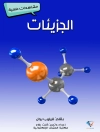Stressproteinssuchastheheatshockproteins(Hsp)andglucose-regulatedproteins (Grp) are front-line molecules in responses to cellular insult and play key roles in the viability of single cell organisms exposed to environmental stresses. However, the discovery of the roles of Hsp and Grp as molecular chaperones indicates much wider functions in the physiology of cells and organisms. It is now clear that some stress proteins are expressed constitutively and are key mediators of housekeeping protein folding in the day-to-day existence of the cell. The maturation of enzymes, transcriptionfactors, andcellsurfacereceptorsreliesonthesefunctionsofthestress proteins. In addition, the ability of stress proteins to manipulate the structures of target proteins has lent them cell regulatory properties over and above their role in folding the proteome and they play key roles in controlling signal transduction, cell death pathways and transcription. Recently, novel extracellular roles for the Hsp have also emerged as it has become apparent that the Hsp can escape from the cytoplasm of cells and play a signi?cant extracellular role in signaling to neighbor cells and in immunosurvei Ilance. As might be expected with such key molecules, dysregulation of Hsp expression over time can lead to disastrous results in terms of the health of the organism. Under-expression of the Hsp is associated with advanced aging and neurodegeneration. Elevated expression is associated with malignant progression. We have aimed in this volume to indicate advances in each oftheseaspectsofstressproteinresearch, withchaptersrangingfrombasicstudies of the role of Hsp in protein folding to reviews examining the breakdown of stress protein regulation in disease. Stuart K.
Tabla de materias
Introduction: Heat Shock Proteins—From Drosophila Stress Proteins to Mediators of Human Disease.- Introduction: Heat Shock Proteins—From Drosophila Stress Proteins to Mediators of Human Disease.- Stress Response and Molecular Chaperones.- Biology of the Heat Shock Response and Stress Conditioning.- Bacterial Stress Sensors.- Unfolded Protein Response: Contributions to Development and Disease.- Molecular Mechanisms of Stress Protein Expression.- Genetic Models of HSF Function.- HSF1 and HSP Gene Regulation.- Cellular Stress Proteins.- Small Heat Shock Proteins in Physiological and Stress-Related Processes.- Large Mammalian hsp70 Family Proteins, hsp110 and grp170, and Their Roles in Biology and Cancer Therapy.- Molecular Chaperones and Protein Folding.- Regulation of Hsp70 Function: Hsp40 Co-Chaperones and Nucleotide Exchange Factors.- Protein Disassembly by Hsp40-Hsp70.- Mammalian HSP40/Dna J Chaperone Proteins in Cytosol.- Role of Molecular Chaperones in Cell Regulation.- FKBP Co-Chaperones in Steroid Receptor Complexes.- Up and Down Regulation of the Stress Response by the Co-Chaperone Ubiquitin Ligase CHIP.- Role of Cdc37 in Protein Kinase Folding.- Intracellular and Extracellular Stress Proteins in Human Disease.- Targeting Hsp90 in Cancer and Neurodegenerative Disease.- gp96 and Tumor Immunity.- Immunoregulatory Activities of Extracellular Stress Proteins.- Heat Shock Proteins and Neurodegenerative Diseases.- Heat Shock Proteins in the Progression of Cancer.












